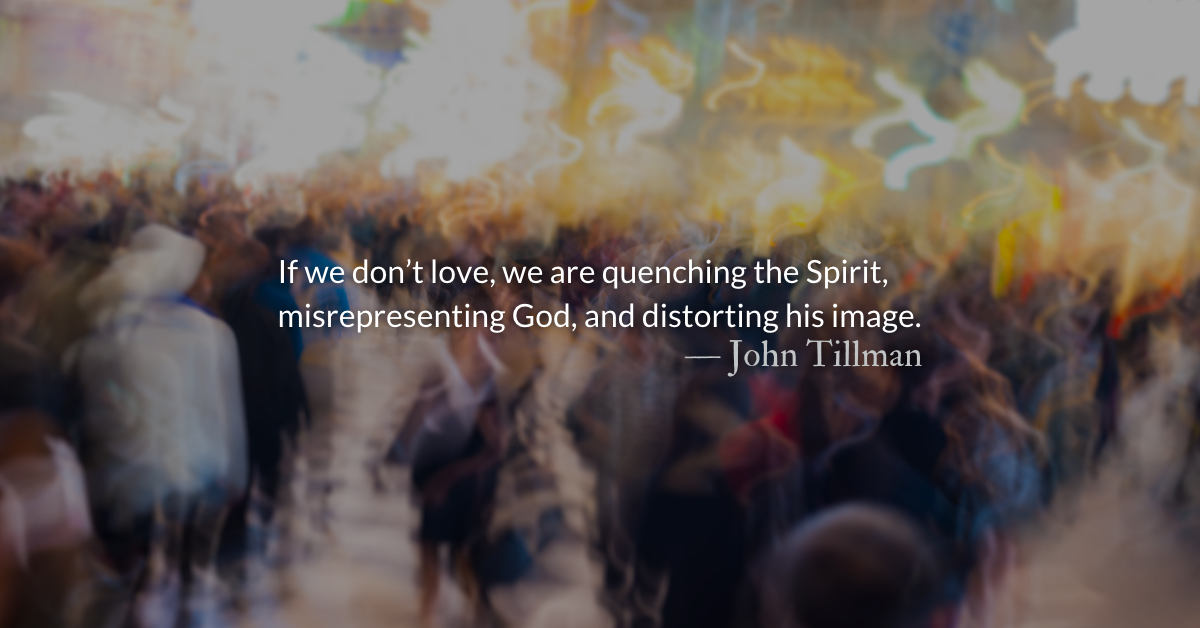Scripture Focus: 1 John 4.7-16
7 Dear friends, let us love one another, for love comes from God. Everyone who loves has been born of God and knows God. 8 Whoever does not love does not know God, because God is love. 9 This is how God showed his love among us: He sent his one and only Son into the world that we might live through him. 10 This is love: not that we loved God, but that he loved us and sent his Son as an atoning sacrifice for our sins. 11 Dear friends, since God so loved us, we also ought to love one another. 12 No one has ever seen God; but if we love one another, God lives in us and his love is made complete in us.
13 This is how we know that we live in him and he in us: He has given us of his Spirit. 14 And we have seen and testify that the Father has sent his Son to be the Savior of the world. 15 If anyone acknowledges that Jesus is the Son of God, God lives in them and they in God. 16 And so we know and rely on the love God has for us.
1 Corinthians 13.13
13 And now these three remain: faith, hope and love. But the greatest of these is love.
Reflection: Another Love Chapter — Love of Advent
By John Tillman
If asked about the Bible’s “Love Chapter”, most probably think of 1 Corinthians 13. Paul’s poem on love is well known for its beauty even outside of Christianity. I read it in literature classes. But there is another love chapter. 1 John 4 is the Apostle John’s.
What these chapters have in common is not sentimentality. They explore the serious implications of sound theology. Paul praises love as greater than any miraculous gift of the Spirit. John identifies love as the surest marker of one who belongs to God and knows God.
This entire chapter of John is about testing. After challenging his readers to “test the Spirits” by whether they testify to Christ’s full, bodily incarnation, John gives us a test for ourselves and for others: Are we loving? If we are not, John says, we do “not know God.”
Why is love the key John uses to open a door to God’s nature? Why does John choose love as the litmus test of identity for the people of God? Shouldn’t God’s nature be about power, glory, and honor? Shouldn’t Christian identity center on purity, holiness, or doctrinal alignment?
It’s not that John is unconcerned about God’s glory or about doctrine. John’s gospel goes to greater lengths than others to emphasize the glorious divinity of Christ. John is also the loudest voice against gnosticim in scripture, defending the full and complete humanity of Jesus.
John’s concern is that our doctrines lead to actions that either testify to God’s glory or not. Right belief is best tested by right actions. Orthodoxy must lead to orthopraxy. If we don’t live in love, we don’t live in God. If we won’t love those we can see, our claim to love God whom we have not seen is in doubt.
John, who saw and touched Jesus (1 John 1.1), the image of the invisible God (Colossians 1.15), tells us that “in this world we are like Jesus.” One purpose of Christ’s advent was to show what God is like. The Holy Spirit’s advent in our hearts shares that purpose. If we don’t love, we are quenching the Spirit, misrepresenting God, and distorting his image.
Let us not just anticipate Jesus’ love for us this Advent, but proclaim it to others. Let Advent be an evangelistic imperative to invite others to see and experience the love of God.
Divine Hours Prayer: The Small Verse
Keep me, Lord, as the apple of your eye and carry me under the shadow of your wings.
Today’s Readings
Esther 7 (Listen 2:08)
1 John 4 (Listen 2:58)
Read more about Supporting Our Work
God works through the Bible to change Christians and change the world. Help us provide free biblical content throughout the year to this end.
Read more about Who Are You Waiting For?
What do people see when they see us waiting for Christ? What does that make them assume about Christ’s identity?






